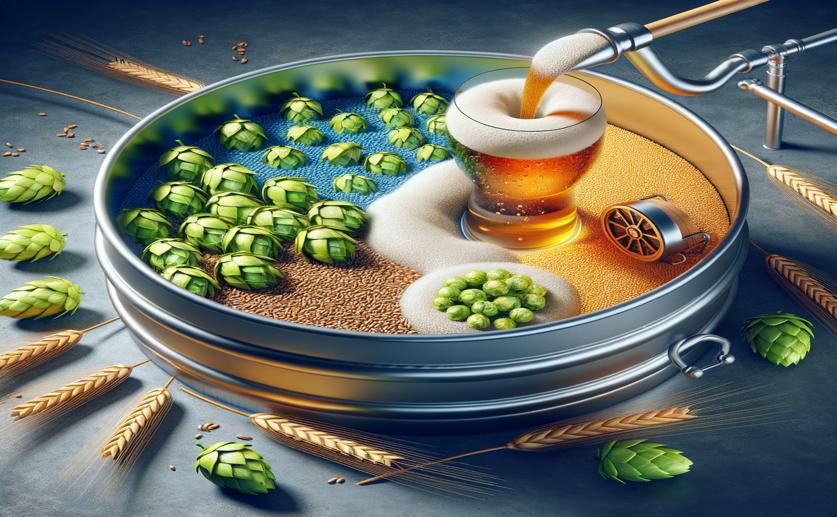
How Barley Proteins Affect Hop Bitterness in Beer Brewing
Jenn Hoskins
19th September, 2024

Image Source: Natural Science News, 2024
Key Findings
- The study by the University of Campinas (UNICAMP) examined how different barley cultivars affect hop bitter acid utilization during wort boiling
- Researchers found that the barley cultivar Liga resulted in significantly lower α- and iso-α-acid content in the wort compared to the Solist cultivar
- The study identified 107 protein groups with significant differences between the two barley cultivars, highlighting the importance of barley selection in optimizing brewing processes
AgricultureBiochemPlant Science
References
Main Study
1) The Influence of Barley Proteome on Hop Bitter Acid Yield during Brewing.
Published 16th September, 2024
https://doi.org/10.1021/acs.jafc.4c04396
Related Studies
2) A kinetic study on the isomerization of hop alpha-acids.
3) Temporal Analyses of Barley Malting Stages Using Shotgun Proteomics.
4) Addition of Hop (Humulus Lupulus L.) Bitter Acids Yields Modification of Malt Protein Aggregate Profiles during Wort Boiling.



 24th August, 2024 | Jenn Hoskins
24th August, 2024 | Jenn Hoskins